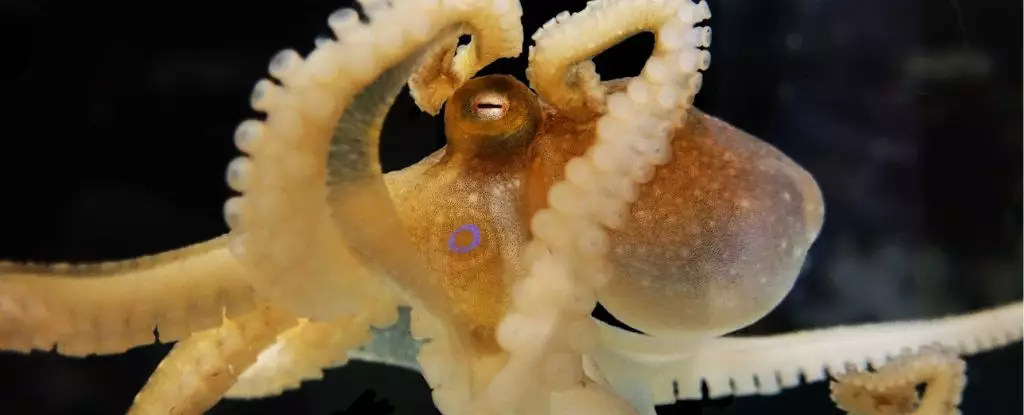A recent discovery in the octopus genome has revealed that cephalopods may have the oldest sex chromosomes of any animal. This finding is significant, as scientists were previously unaware of any form of sex determination written into the genes of these peculiar creatures. Biologists have traditionally relied on observation to determine the sex of an octopus, based on whether the individual lays eggs or produces sperm. However, searching the octopus genome had previously yielded no clear sign of a sex chromosome system, leading to speculation that sex determination in cephalopods might be influenced by environmental factors rather than genetic inheritance.
Researchers at the University of Oregon claim to have solved this mystery by identifying the first evidence of genetic sex determination among octopuses. By examining the genes of the California two-spot octopus (Octopus bimaculoides), researchers discovered a unique chromosome pair on chromosome number 17. This finding only became apparent when comparing the fully sequenced genomes of male and female octopuses, with the female octopus showing a missing copy on one of their two chromosomes. Further analysis revealed clear signatures of a ZW sex-determination system, which is also found in birds, crustaceans, and some insects. Unlike the human XY system, where two X chromosomes result in a female body plan, octopuses have an opposite system where males typically have a double-Z pair and females possess only one Z chromosome.
To investigate if this sex determination system is present in other cephalopods, researchers compared the genomes of multiple octopus and squid species. The Z chromosome identified in octopuses was found to be an evolutionary outlier that differs from similar chromosomes in close relatives. The Z chromosome is believed to have originated between 455 and 248 million years ago, making it potentially the oldest animal chromosome discovered to date. By comparison, vertebrate sex chromosomes are much younger, with the oldest accepted vertebrate chromosome belonging to a sturgeon fish at approximately 180 million years old. The longevity and uniqueness of the octopus Z chromosome suggest a deep evolutionary history that predates many other known sex chromosomes.
Changing Perspectives on Sex Chromosomes
The recent findings challenge traditional notions of sex chromosome evolution and diversity in animals. While sex chromosomes were once considered intrinsic features of sex determination, research has shown that some species, like certain fish and reptiles, lack sex chromosomes altogether. Instead, the sex of their offspring is determined by external factors such as temperature through epigenetic regulations. The discovery of ancient sex chromosomes in octopuses highlights the complexity and variability of sex determination mechanisms across different species.
With their ancient genetic origins and unique sex chromosome system, octopuses present an intriguing model for further research into the evolution of sex chromosomes. By studying the genetic mechanisms that underpin sex determination in cephalopods, scientists can gain valuable insights into the broader evolutionary history of sex chromosomes in animals. The discovery of ancient sex chromosomes in octopuses opens up new avenues for exploring the diversity of sex determination systems and the factors driving their evolution. As research continues to uncover the complexities of sex chromosome biology, the fascinating world of cephalopods promises to reveal even more secrets about the genetic foundations of life.

Leave a Reply